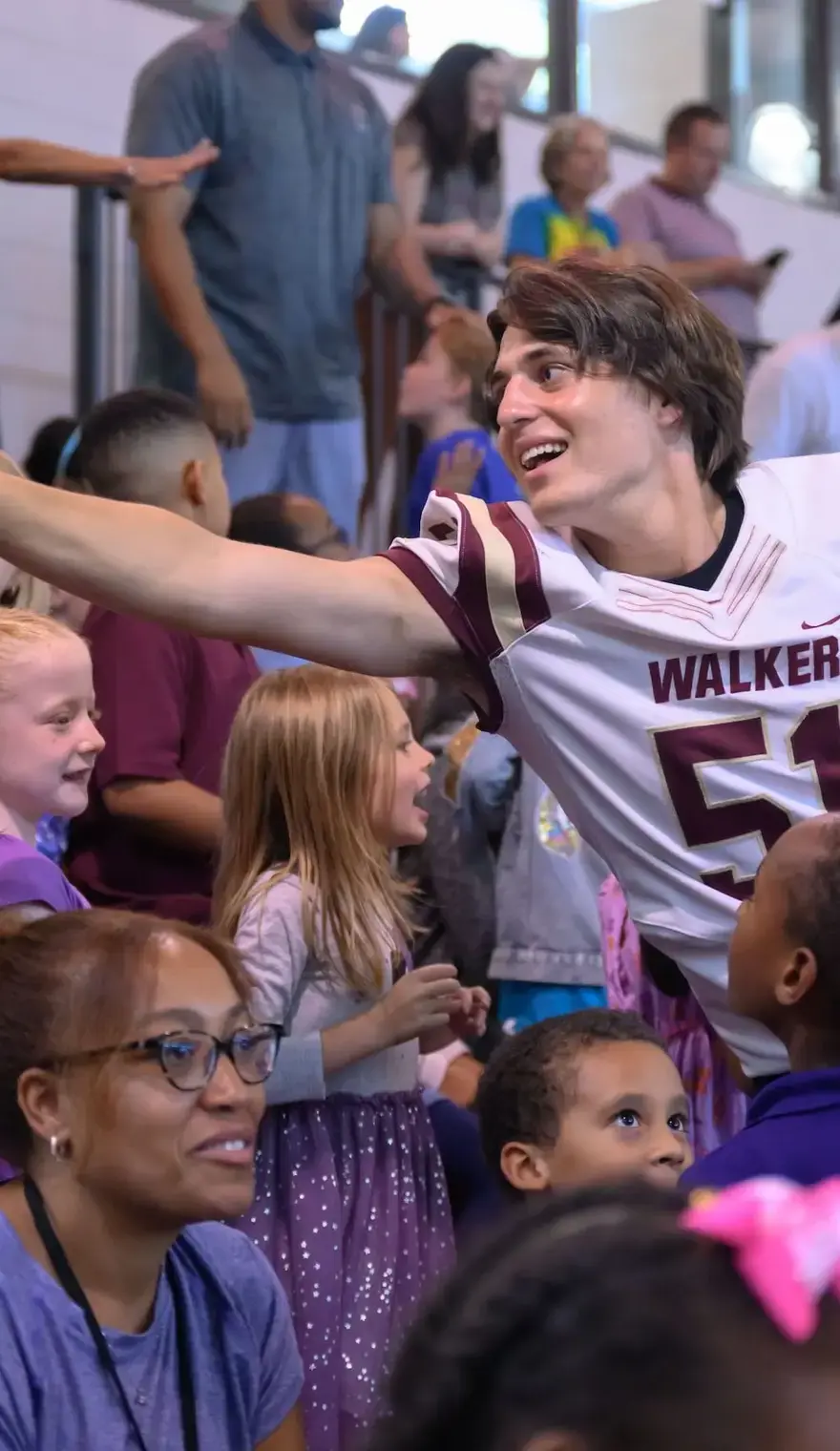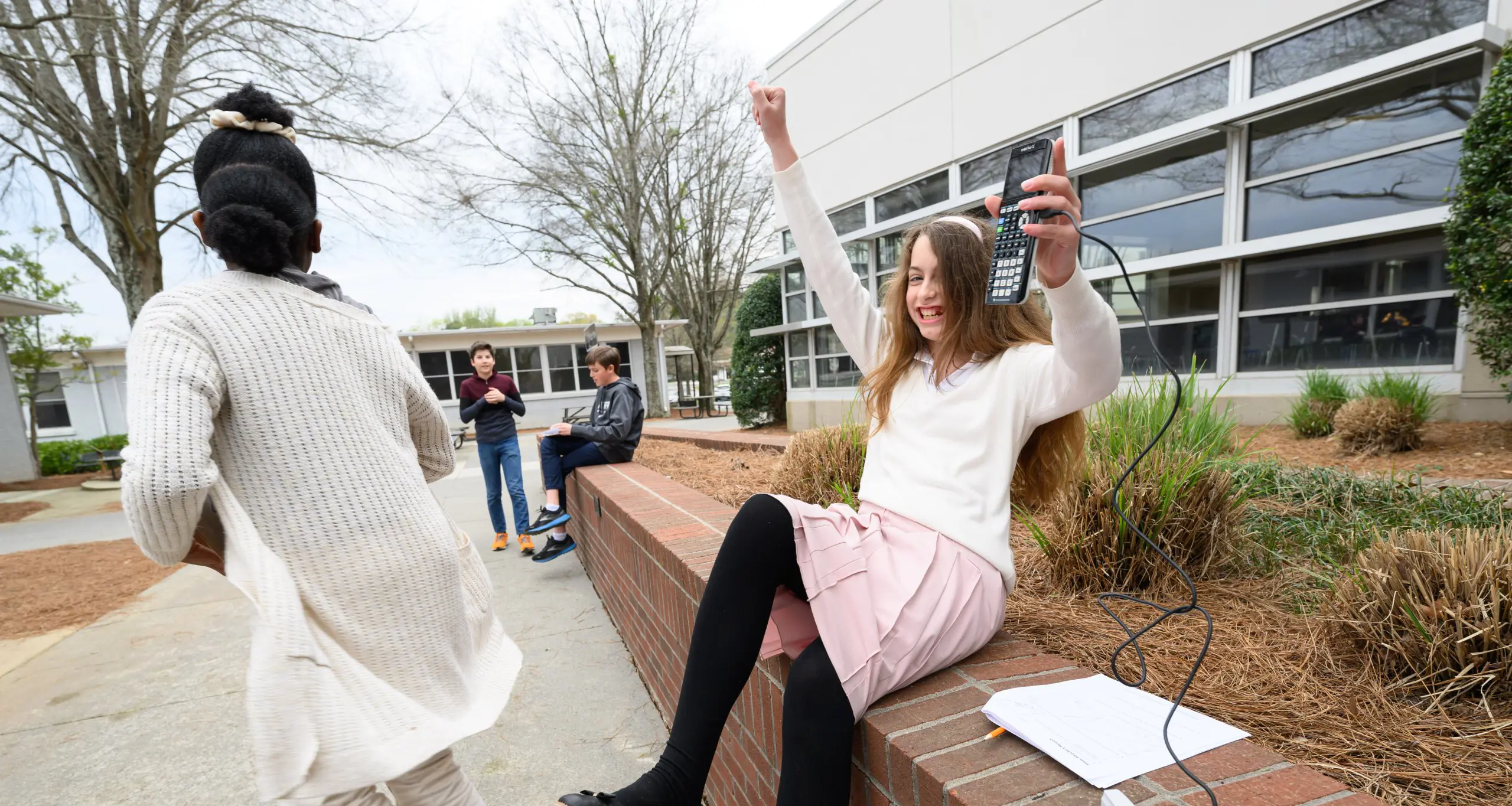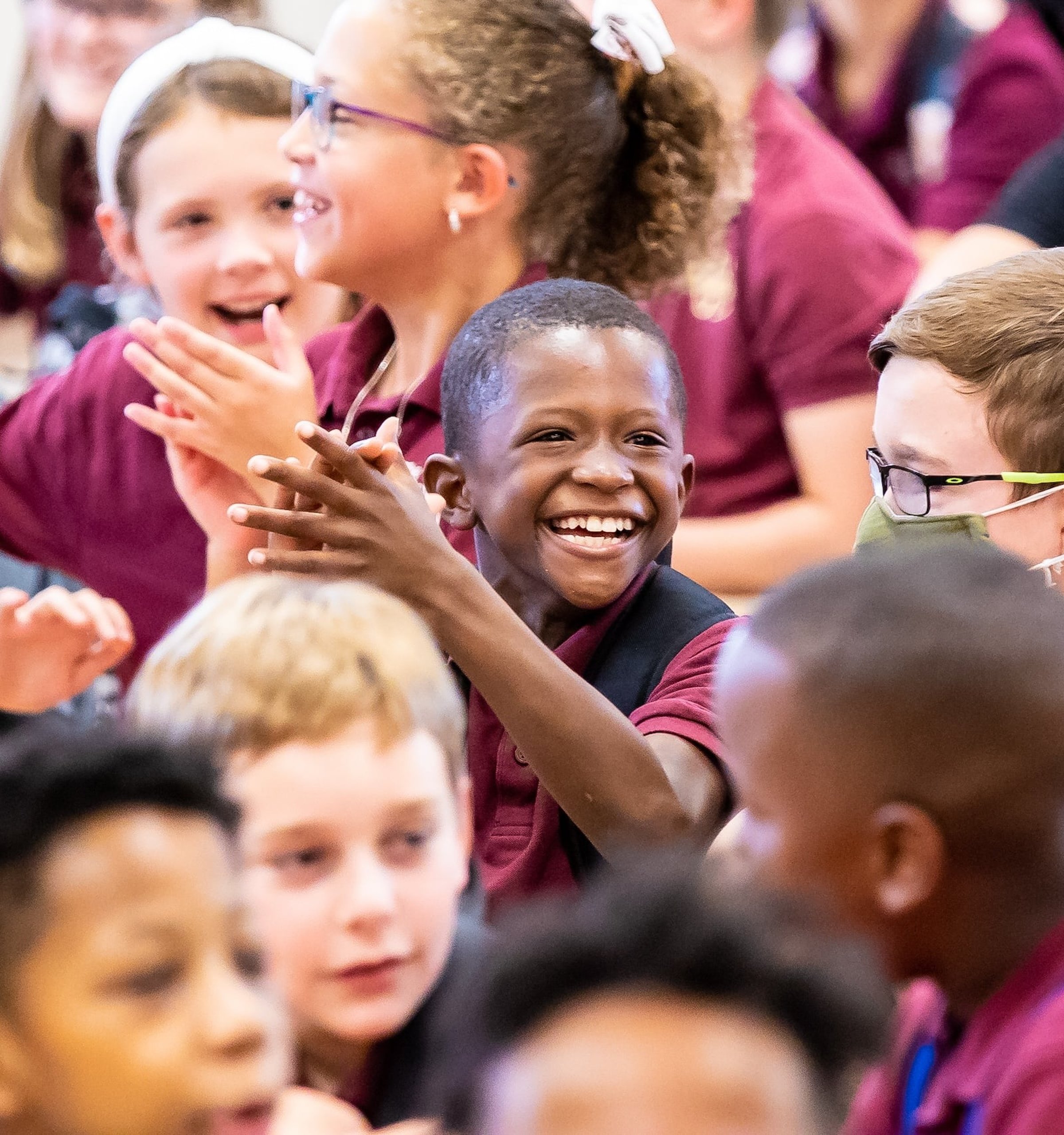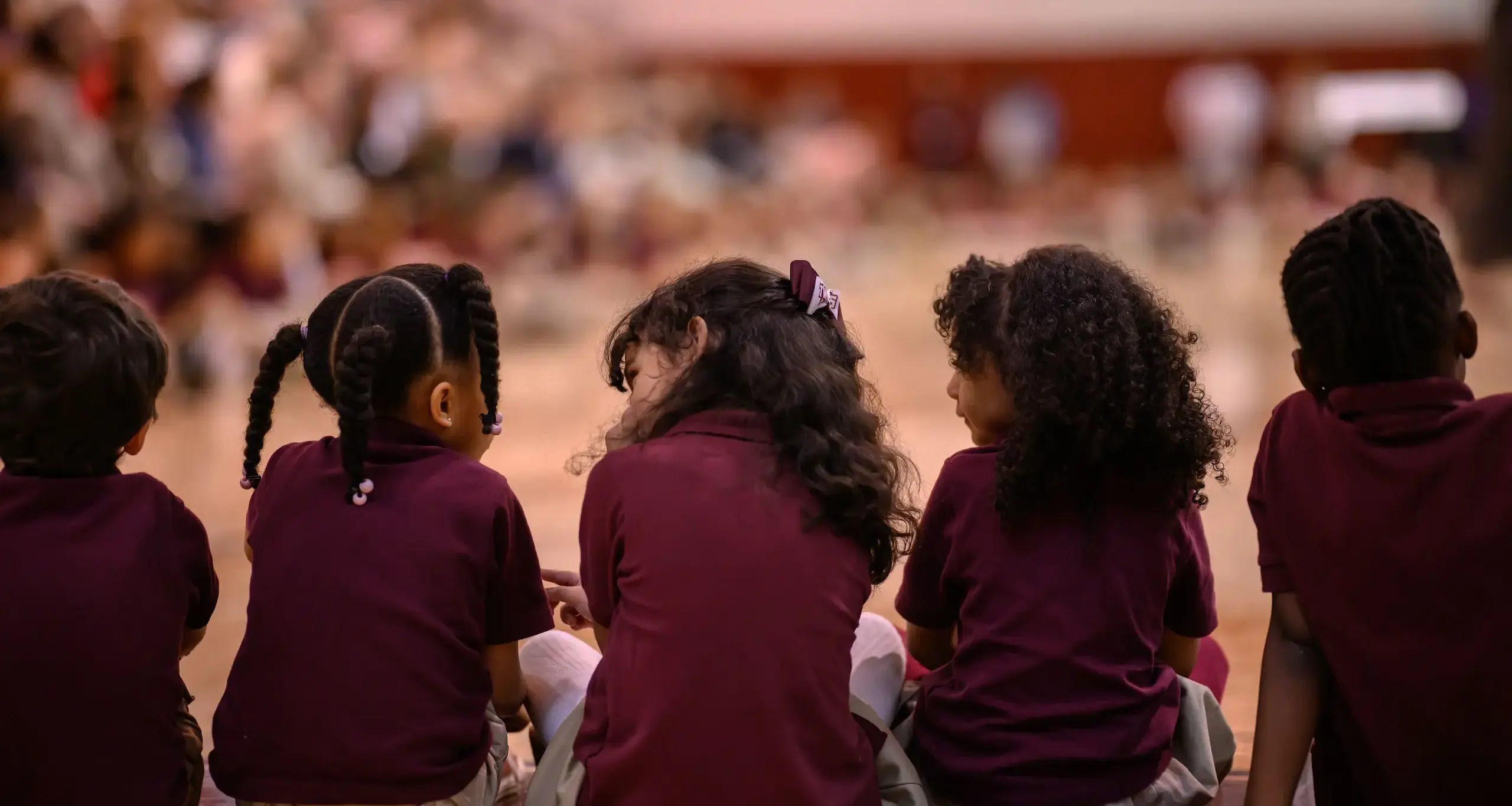Students explore who they are and begin to develop good habits and strong character. Walker’s Middle School program is designed to provide students with the freedom to discover their interests while preparing them with the study and organization skills they need to succeed.
SIXTH
GRADE
All sixth-grade students study English grammar and composition, literature, global studies and current events, mathematics, Earth Science and world languages, including one quarter each of Latin, Spanish and French. Students also spend one quarter working on their study and social-emotional skills.
During the first two weeks of school, sixth-graders experience all of the arts –fine art, drama, chorus, orchestra and band–before selecting which elective they want to pursue for the year. All students also take one full semester of physical education and digital media.
All incoming sixth-graders are invited to attend a weeklong summer onboarding camp that gives them a chance to meet classmates and teachers and become familiar with our campus.
_553.webp?version=638587154947830000&version=638587154947830000)
SEVENTH
GRADE
Seventh-grade students study English grammar and composition, literature, U.S. history (to 1877), life science, and one year of Latin, Spanish or French. Math is leveled and depends on assessed developmental readiness and teacher recommendations.
Students choose a fine arts elective from a list of options including band, orchestra, or a rotation of drama, chorus and art. All seventh-grade students also take one full semester of technology (Digital Media, Intro to Engineering and Robotics, or Computer Science Principles) and one full semester of Physical Education.
Middle School students who meet certain academic requirements are inducted into Beta Club during their seventh-grade year.
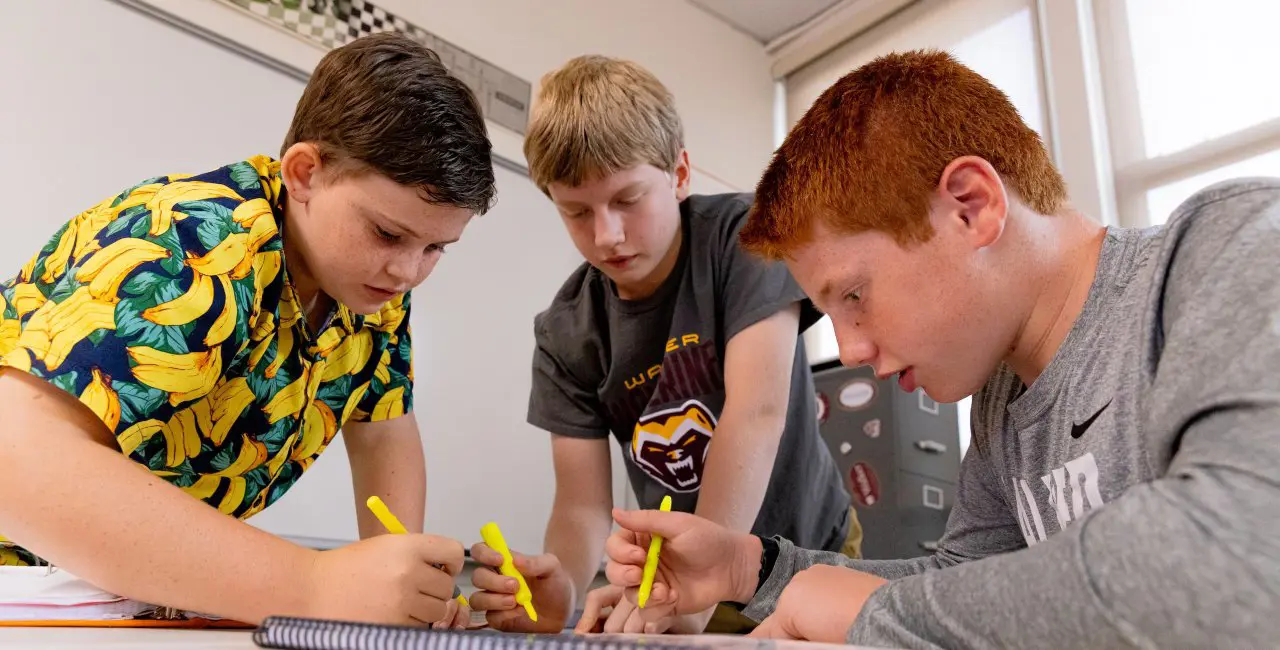
EIGHTH
GRADE
Eighth-grade students study literature, U.S. history (1877 to present), mathematics and physical science while continuing their study of Latin, Spanish or French.
Students select a fine arts elective for the year from a list of options including band, orchestra, drama, chorus or visual arts. All students also take one full semester of technology (Digital Media, Intro to Engineering and Robotics, or Computer Science Principles) and one full semester of Physical Education or Cardio Strength Training.
Eighth-grade students have the opportunity to differentiate their schedule with challenging coursework in a series of seminars offered in English, science and U.S. history.


